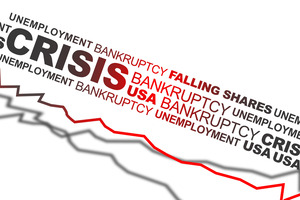
What debts are dischargeable in bankruptcy?
Understanding Bankruptcy Discharge
Bankruptcy discharge refers to the elimination of certain debts through the legal process of bankruptcy. Not all debts are dischargeable, meaning that some obligations will remain even after filing for bankruptcy. However, bankruptcy can provide relief from many types of debts, allowing individuals to regain control of their finances and move forward with a clean slate.
Dischargeable Debts
Several types of debts can typically be discharged through bankruptcy, including:
- Credit card debt: Unsecured debts, such as credit card balances, are generally dischargeable in bankruptcy, providing relief for individuals struggling with high interest rates and mounting balances.
- Medical bills: Medical expenses can quickly accumulate, especially in the event of unexpected illness or injury. Bankruptcy can offer relief from overwhelming medical debt, providing a fresh start for individuals burdened by healthcare expenses.
- Personal loans: Loans obtained from friends, family members, or financial institutions may be dischargeable in bankruptcy, depending on the circumstances surrounding the loan.
- Utility bills: Past-due utility bills, such as electricity, water, and gas bills, can often be discharged in bankruptcy, offering relief for individuals facing utility shut-offs and service interruptions.
- Certain tax debts: While not all tax debts are dischargeable, certain income tax debts may be eligible for discharge under specific criteria, such as age, timing of the tax debt, and compliance with tax filing requirements.
Debts That Cannot Be Discharged in Bankruptcy
It’s essential to understand that not all debts can be discharged through bankruptcy. Some common types of debts that are typically non-dischargeable include:
- Student loans: Most student loan debt is not dischargeable in bankruptcy. However, if the debtor can demonstrate undue hardship, they might have success. But hardship is a challenging standard to meet.
- Child support and alimony: Court-ordered child support and alimony obligations are generally non-dischargeable in bankruptcy. This is to ensure that parents fulfill their financial responsibilities to their children and former spouses.
- Certain tax debts: Some tax debts may be dischargeable. However, others including tax liens, payroll taxes, and fraudulent tax debts, are generally non-dischargeable under bankruptcy law.
- Court judgments for personal injury or wrongful death: Debts resulting from court judgments for personal injury or wrongful death claims are typically non-dischargeable. This ensures that victims receive compensation for their injuries or losses.
Seeking the Assistance of a Bankruptcy Attorney
Navigating the complexities of bankruptcy law and understanding your options for debt relief can be challenging. That’s why it’s essential to seek the assistance of a qualified bankruptcy attorney. Bankruptcy attorneys provide:
- Legal expertise
- Case evaluation
- Protection of rights
- Ability to maximize benefits of filing
Bankruptcy provides relief from many types of debts. It offers people a chance to regain control of their finances and move forward with a clean slate. While not all debts can be discharged through bankruptcy, seeking the assistance of a qualified bankruptcy attorney can help you understand your options before filing.
For more information about business or personal bankruptcy, contact the Law Offices of Robert M. Geller at (813) 254-5696 to schedule a free consultation with an experienced attorney.




























![Signs That You May Need to File Bankruptcy [Infographic]](https://djml3wkzi26ea.cloudfront.net/wp-content/uploads/2021/01/signs-chap7-v-chap13.jpg)
![How To File for Bankruptcy [Infographic]](https://djml3wkzi26ea.cloudfront.net/wp-content/uploads/2020/07/bankruptcy-steps-infographic-web.jpg)










